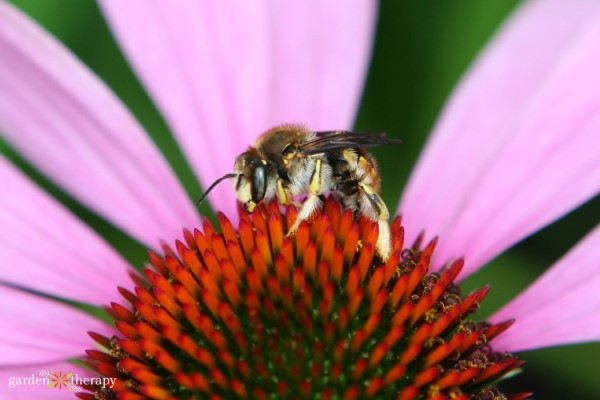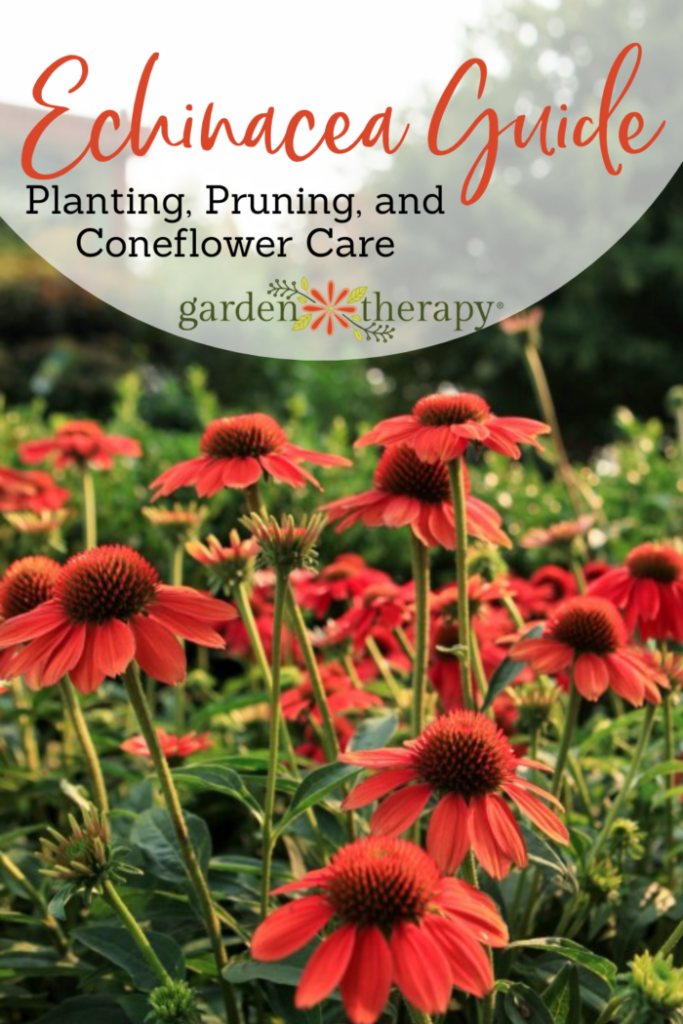Echinacea is an easy-to-grow plant that may add a fairly pop of color to any area. Not solely is that this plant pollinator-friendly, but it surely makes for an attractive reduce flower too! Right here’s methods to plant, prune, and look after coneflowers.
Echinacea has a really particular place in my coronary heart and my backyard. There’s a lot to like about these beautiful spiky flowers. They’re drought-tolerant and gained’t complain about poor soil.
They’re extraordinarily low upkeep as soon as established and produce a ton of eye sweet that brings an added pop of color to the backyard.
Echinacea additionally makes fantastic reduce flowers, engaging pollinator vegetation, is a crucial meals supply for birds within the winter, they usually have medicinal properties to assist us construct our immunity.
With all these fantastic advantages, Echinacea certainly deserves a everlasting spot in your backyard!
Soar forward to…
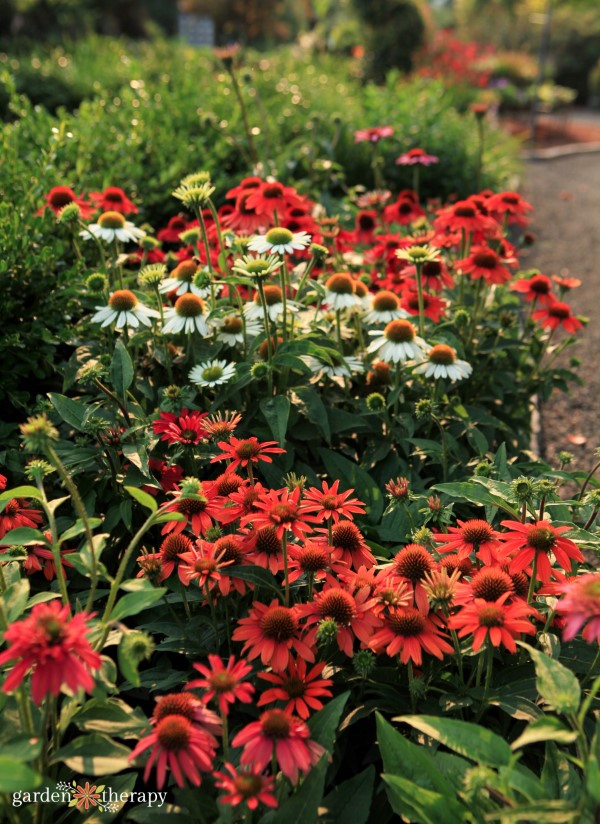
Coneflower Varieties
There are such a lot of hybrid forms of Echinacea now out there. This decorative appears to be a favorite of breeders as new coneflowers are popping up yearly.
New varieties are being launched yearly which have new or brighter colors, taller or smaller vegetation, totally different rising habits, extra prolific blooming, and double blooms.
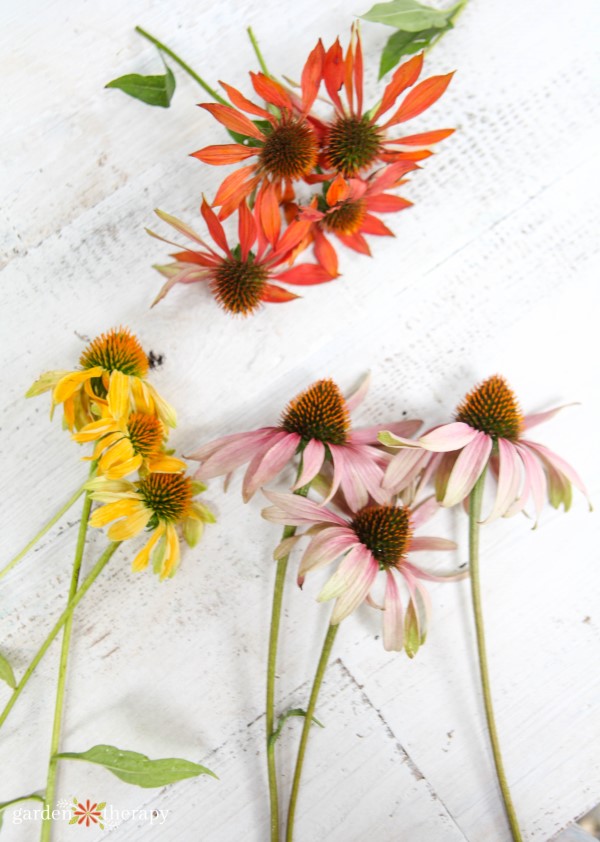
Listed here are a number of new varieties to look out for in backyard centres. I used to be in a position to see these in individual this 12 months by way of excursions and backyard trials, and I actually love how they’ve carried out.
Rising Echinacea
Coneflowers are very low-maintenance as soon as they’re established. Right here are some things you are able to do to get them began off proper.
Beginning Coneflower Seedlings
I really like coneflowers not only for their magnificence however for a way straightforward they’re to develop. They’re hardy all the way in which to zone 3, making them a shiny and manageable perennial.
You possibly can start sowing Echinacea seeds indoors for 8-10 weeks earlier than transferring them outdoors. After 10-21 days, they need to germinate.
It’s also possible to direct sow them in early spring or early fall. Seeds needs to be sown shallowly at roughly 3m (1/8”) deep.
House them out 12-15”. They give the impression of being beautiful when planted in mass!
Mild
Choose a location with the brightest mild that you’ve. Echinacea loves shiny mild and thrives in full solar. Nonetheless, the vegetation will tolerate partial solar as effectively and nonetheless produce loads of flowers.
I’ve plenty of shade in my backyard, and I attempt to pop in as many coneflowers as I can anyway. They nonetheless bloom within the shade however are much less floriferous and might are likely to flop over.
Watering
Echinacea can be very easygoing in relation to watering. Water them effectively to determine new vegetation within the backyard and encourage deep roots. As soon as established, they gained’t want any supplemental watering until you might be in intervals of maximum drought.
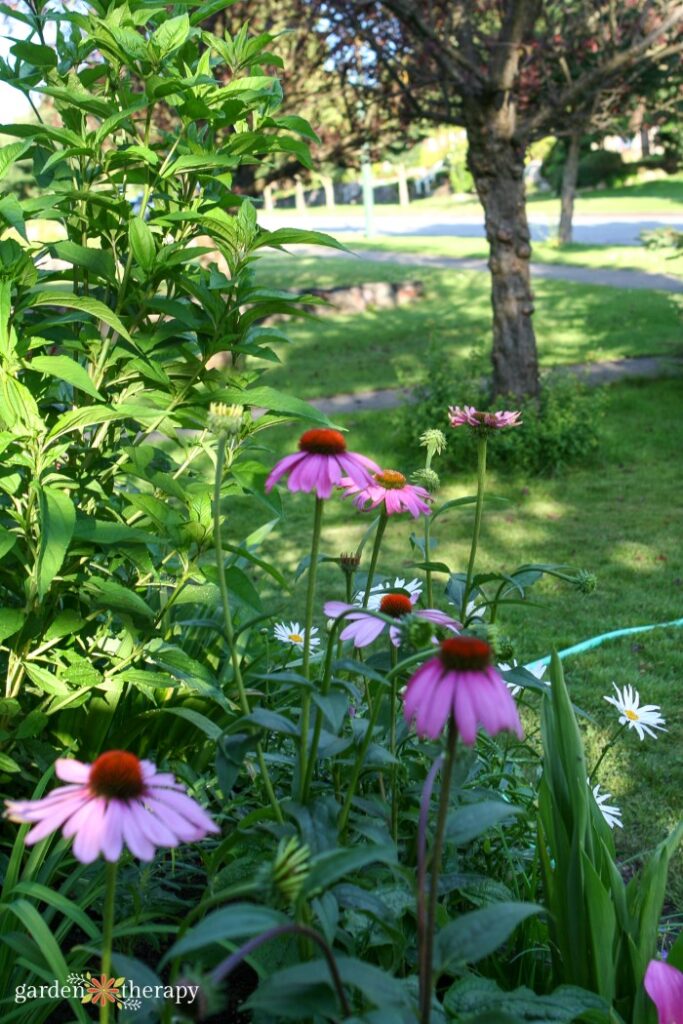
Coneflower Care
Fertilization
Coneflowers don’t want any particular fertilizers all year long. Plant them with some well-rotted compost, after which add compost once more within the spring.
Comply with your regular soil-building methods, and also you gained’t have so as to add any supplemental diet for the vegetation.
Propagation
Echinacea grows a lengthy taproot, which helps it suck up water from deep down within the soil and provides it that hardiness. This taproot additionally signifies that they aren’t a great perennial to divide.
Permit the vegetation to clump, and if you wish to plant extra, begin them from seed, cuttings, or seize a brand new transplant.
Pruning
These low-maintenance vegetation don’t want pruning all year long, however you’ll be able to prune them to extend blooms and lengthen bloom time.
Echinacea is already fairly a long-blooming plant, beginning in midsummer and going all the way in which into mid-fall in my Zone 7 backyard. When you’re fortunate sufficient to have a big area with a set of vegetation, you’ll be able to actually lengthen the bloom time by chopping again a few of the vegetation in midsummer.
Slicing again the vegetation delays blooming, so you’ll be able to both in the reduction of all of your vegetation for a late summer season and fall show or solely in the reduction of a few of the vegetation and stagger the bloom occasions for an excellent longer season. Fiskars makes some fantastic pruners that turn out to be useful and reduce by way of the thick stems with little or no effort.
Ought to I Deadhead Coneflowers?
If you wish to improve the scale of newer forming blooms, you’ll be able to deadhead Echinacea. When you observe the stem all the way down to the primary set of leaves, you would possibly see flower buds forming.
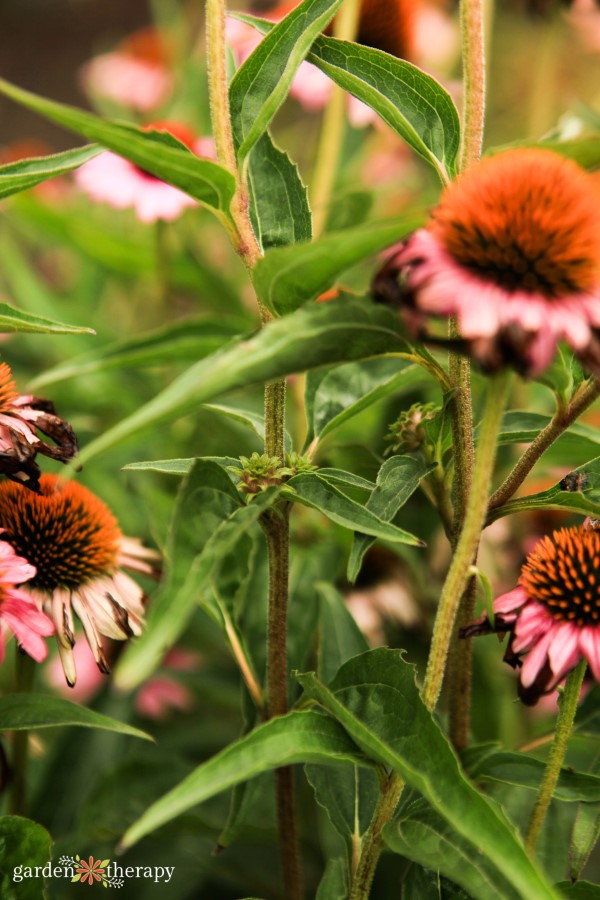
This can be a good time to go in and take away the flower above. Minimize the stem proper above the brand new flower development, and you’ll add the bloom to a flower association.
Deadheading is just chopping off the older flowers, which inspires the plant to place power into producing the newer flowers reasonably than producing seeds on the previous flowers. Be taught extra about deadheading flowers right here.
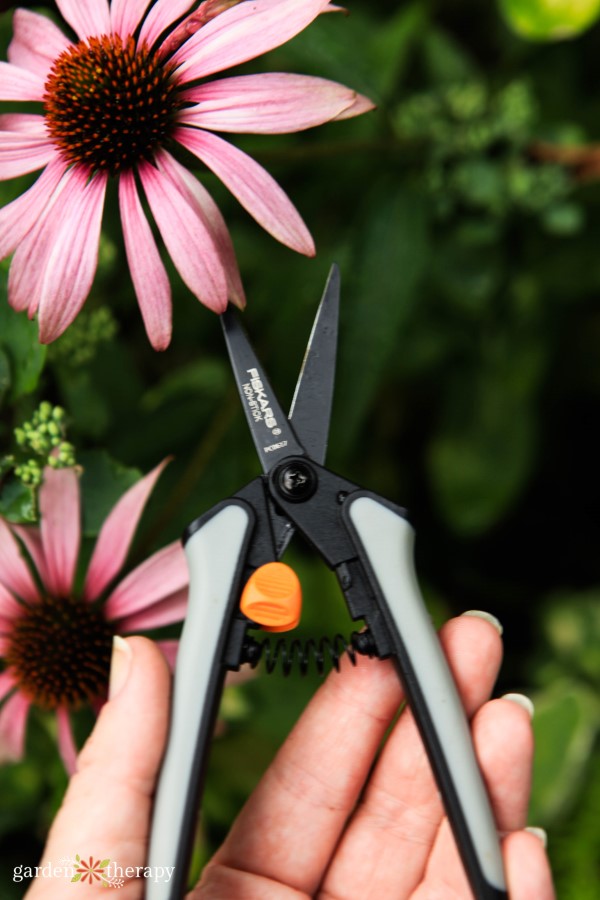
When the second wave of flowers blooms, I preserve them in place for fall and winter because the birds LOVE to snack on the seeds. The seed heads dry with a spiky cone above a tall stem. I dry the reduce flowers for his or her seed heads to make use of in crafts and depart the remainder within the backyard for winter curiosity.
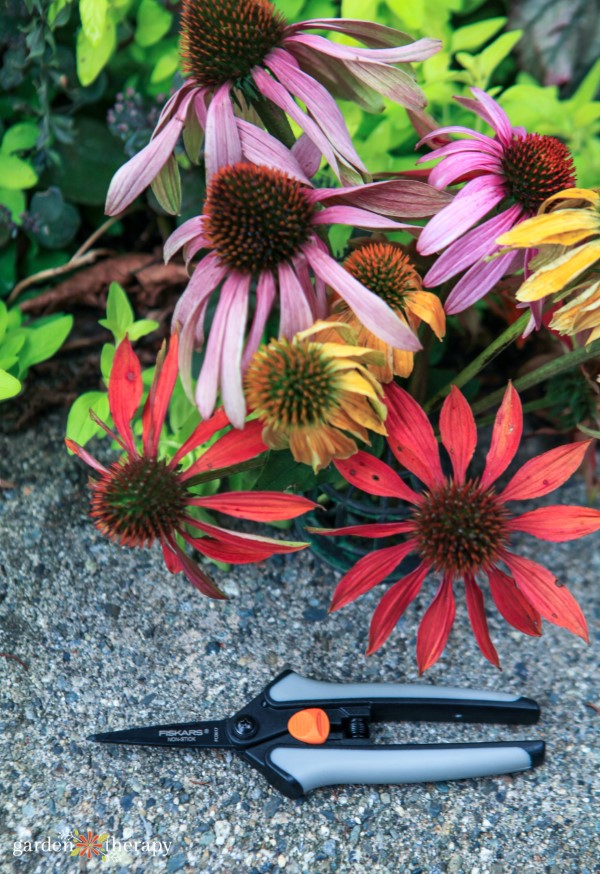
Echinacea Makes use of
Echinacea has been used medicinally all through the ages. The next data is from Rosemary Gladstar’s Natural Recipes for Vibrant Well being.
Echinacea pallida and E. angustifolia are primarily wild Echinacea that may be discovered on the sides of wooded areas. The most typical and easy-to-grow Echinacea for gardens is E. purpurea.
These three varieties are mostly used as medicinal vegetation. The roots, leaves, and flowers all have therapeutic properties. Echinacea is a robust immune-system booster that has no unwanted effects and is protected for youngsters, the aged, and everybody in between.
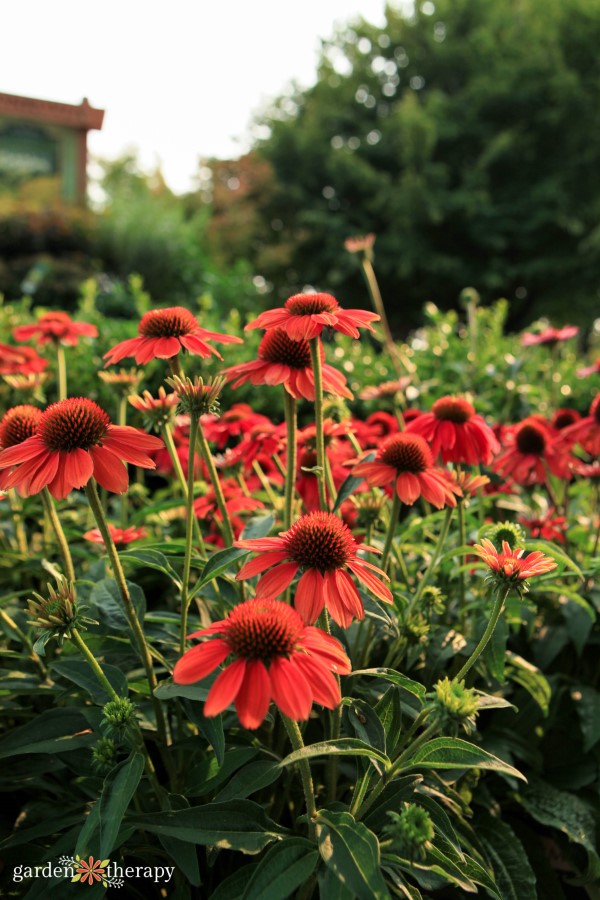
To make use of Echinacea as a medicinal plant out of your backyard, guarantee that you’re rising an natural plant that has not been sprayed or handled with pesticides or herbicides.
The whole plant can be utilized to make a tincture that’s helpful to have round in cold-and-flu season. Take it ceaselessly in small doses on the first signal of a virus, however cease taking it when you get higher, as its effectiveness wanes if it’s used too ceaselessly.
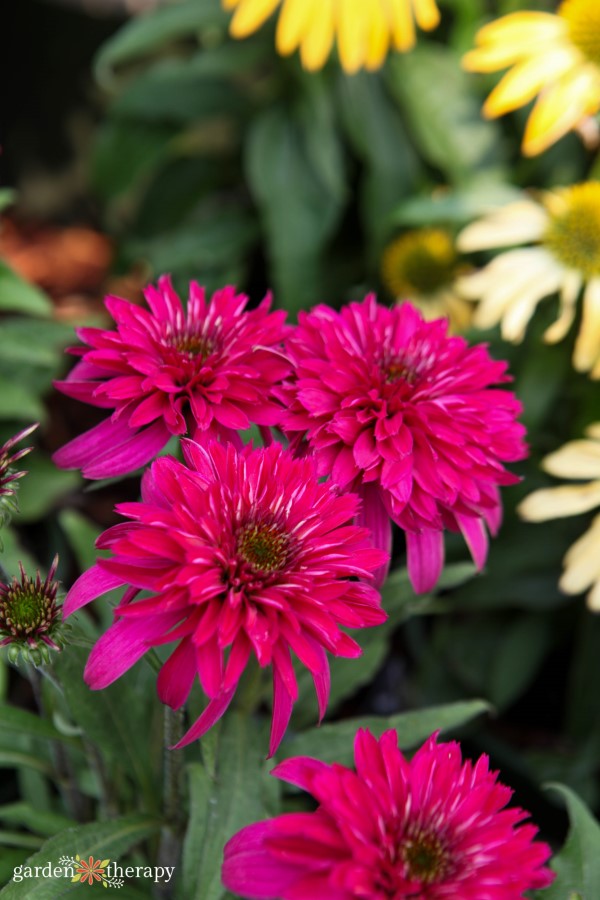
How you can Make Echinacea Tea
For the tea, you should utilize the flowers, leaves, roots, or stems of the plant. I like to make use of the flower petals and leaves. Harvest your coneflowers when the flower heads are absolutely mature.
You possibly can select to make use of both contemporary or dried Echinacea. If utilizing contemporary, you’ll want 2 tbsp of the flower. For dry, you’ll want 1 tbsp. Let your Echinacea steep in boiling water for quarter-hour. Then, pressure the flowers, roots, or leaves from the pot and drink away.
When you’re making natural tea for the primary time, learn this information to creating home made natural tea first.
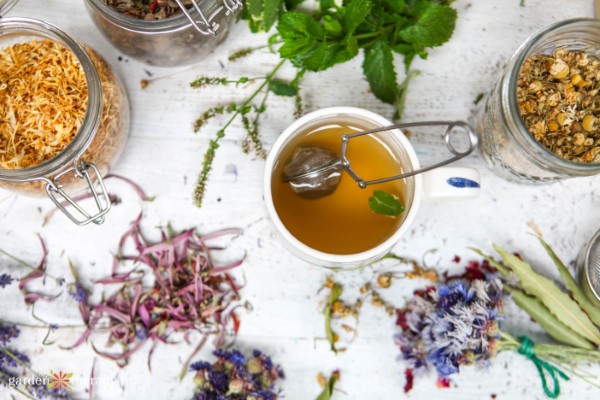
Steadily Requested Questions About Echinacea
Coneflowers unfold by self-seeding. Within the fall, should you depart the seed heads, some will drop. Tons of wildlife take pleasure in these seeds, so most will get eaten up. No matter doesn’t might germinate the following spring. When you want to cease the seeds from spreading, merely deadhead the spent blooms within the fall.
Echinacea is a particularly hardy plant that acts as a perennial in most zones. It prospers in zones 5-8, however can be grown as little as zone 3. Larger zones will profit from the drought tolerance of the plant, however might stillneed some supplemental watering.
Coneflowers will deliver loads of pleasure to your summer season and early fall backyard. They bloom from July by way of September.
Echinacea are thought-about deer-resistant vegetation. Whereas deer might often munch on them, they would favor different vegetation within the space earlier than consuming Echinacea.
